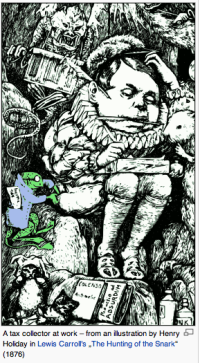 As December turns to January, the mail turns decidedly less friendly. The joy of holiday cards is replaced by tax forms and bills. If you own property in Boston, it’s been an unpleasant experience with the receipt of property tax bills showing consistently higher tax rates. The North End / Waterfront and Boston’s downtown neighborhoods have been especially hard hit since assessed values have held up relatively well and increased in many cases.
As December turns to January, the mail turns decidedly less friendly. The joy of holiday cards is replaced by tax forms and bills. If you own property in Boston, it’s been an unpleasant experience with the receipt of property tax bills showing consistently higher tax rates. The North End / Waterfront and Boston’s downtown neighborhoods have been especially hard hit since assessed values have held up relatively well and increased in many cases.
For Fiscal Year 2011, the rate is $12.79 per $1,000 of assessed value, up 7.1% or 91 cents from last year. Once again, the city increased the rate by the maximum amount allowed under Proposition 2 1/2. Commercial rates also went up from $29.38 to $31.04.
Patch Columnist John Keith attempts to explain the situation, noting that a $500,000 Boston condo now pays $6,395 in annual property taxes.
“Unlike many US cities, Boston relies heavily on the property tax to fund its budget — something like 70 percent of its revenue comes from residents and business owners. …. If not for the downtown Boston neighborhoods, Boston’s finances would be a complete mess. To put it simply, we’re paying the majority of the city’s bills. While home values in the outer neighborhoods have continued to fall, downtown prices remain high. So, our taxes stay the same and/or go up while other residents’ taxes drop. We’re subsidizing everyone else. You’re welcome.”




So increased taxes should bring me better services from the city, right?
Ok if that is what you want to believe ;-D
We (that includes me) all need more education on how residential and commercial property taxes are set by the City of Boston and the effect of the Proposition 2 1/2 state law. I believe the statement, "the city increased the rate by the maximum allowed under Proposition 2 1/2" is true if it refers to the entire tax levy on all properties (commercial and residential), but the statement in the context of this article is misleading. It is my understanding that Proposition 2 1/2 caps the annual increase in the total tax levied by the City on all commercial and residential properties at 2 1/2%. It is also my understanding that the City of Boston has increased the total tax levy every year by the maximium allowed, but on this I may be mistaken. Within the total levy, the increases (or decreases) in the separate tax rates each year for commerical property vs. residential property are entirely determined by City Hall, not by Proposition 2 1/2. This explains why residential property taxes can increase by an average of 7.1%, while the overall tax levy on all properties is limited to 2 1/2%. As stated in the article, the tax burden is shifting from commercial property owners to residential property owners.
I guess my property taxes didn't pay for trash pick-up today…